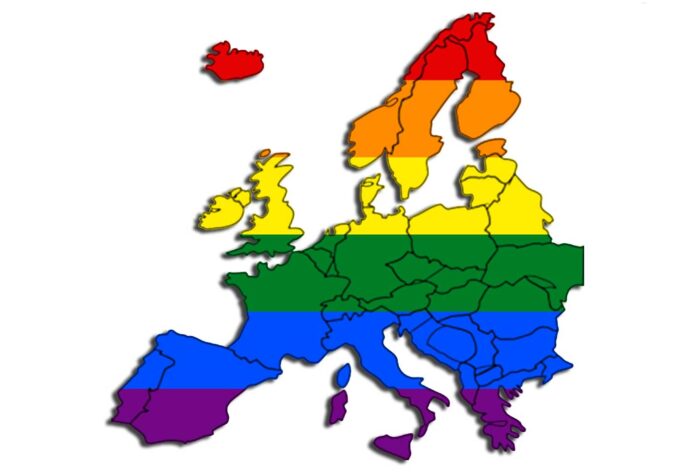After speaking engagements, diplomatic LGBT Pride receptions, and meetings with LGBT activists, Parliamentarians, and Deputy Prime Ministers in U.S. embassies across Europe in the last 10 days, what I learned was that the LGBT community internationally still to this day looks to the U.S. movement for inspiration, and they do so with three words, one of which surprised me and made me appreciate the need to be aware of our history and where we must go to be inclusive as a community.
The first two of those words are Stonewall and Pride. They feel those are the two events that changed the world for our community. They represent what Gay Liberation Front made of us, a community that is out, loud, and proud, a community that is willing to fight back against oppression from their governments. Unfortunately, some governments are represented today by words we know well here in the States: “Traditional family values.” Also unfortunately, those traditional family values, also known as LGBT discrimination, are spreading across Europe. The LGBT communities in those countries likewise aspire to fight back by being visible. They relate to the isolation and oppression that Stonewall participants fought against in 1969, they understand the celebration of the first Pride one year later, and they also understand that both events were used as a tool for us to show our best weapon: visibility.
In several countries in Europe, LGBT communities have Pride marches even when the Government attempts to stop them, and even when the government tries to make the community invisible by discriminatory laws. The best examples are those in Hungary and Turkey. The history of Stonewall and Pride in America amazes activists abroad, that just one year of visibility could begin to change the course of our community. That history inspires those activists in other countries to do the same.
Which brings us to that third word, intersectionality. It surprised me that they were aware of it and how it was a key factor and interest of our LGBT community. They were somewhat surprised to hear that one of the founders of Black Lives Matter was a Black lesbian. And like most progressives in the U.S., they were not aware that during that first year between Stonewall and Pride, which is almost holy to them, Gay Liberation Front fought to make our new equality struggle what would now be called intersectional, by GLF members opening talks and joining marches with the Black Panthers and Young Lords, by women in GLF fighting in the feminist movement even with feminists who refused to accept them as part of the struggle.
And that is where our history smacks right up to the present. When we join with other movements for social change and fight oppression, we must not merely ask, but demand that they accept us as full partners, and they must embrace inclusion of our community.
The challenges of traveling between countries during Covid, which were numerous, pales in comparison to the joy it gave me to see how our country’s State department under President Joe Biden is working to create a safer world for all LGBT people. And it’s a reminder that we’re still leaders in the global LGBT community.
